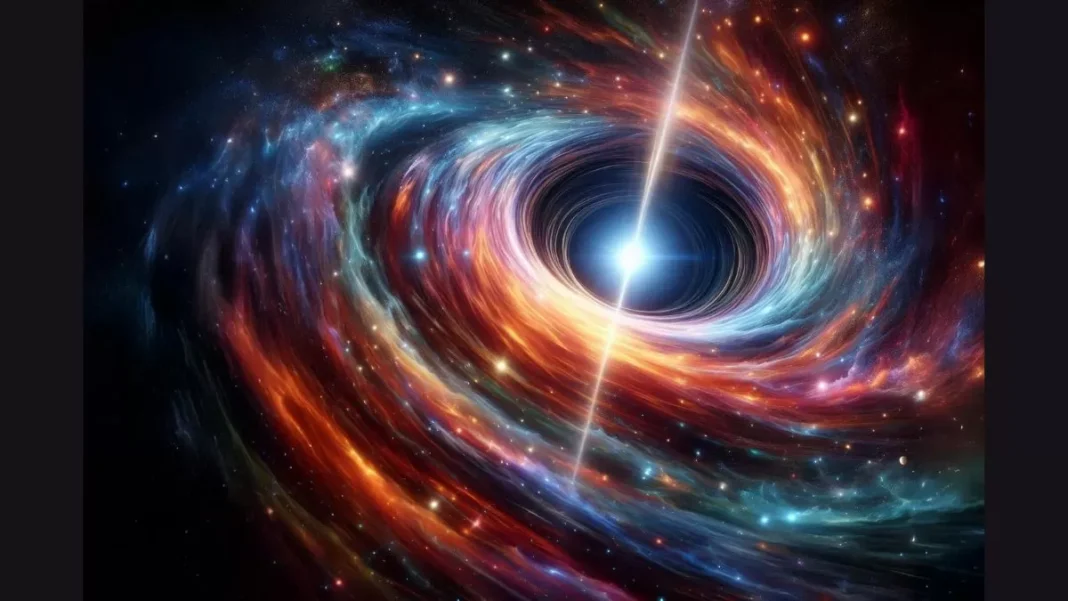A new theory surrounding black holes has recently been proposed, offering a potential solution to the long-standing paradox of singularity. This theory suggests that by modifying gravity equations, we may be able to better understand the mysterious nature of these cosmic phenomena. However, not all scientists are convinced, with some arguing that this model lacks sufficient observational support and is based on speculative assumptions. One such scientist, Nikodem Poplawski, believes that future data from gravitational waves or the cosmic microwave background could hold the key to unlocking the true nature of black holes.
Black holes have long been a source of fascination and intrigue for scientists and the general public alike. These enigmatic objects are formed when a massive star collapses in on itself, creating a gravitational pull so strong that even light cannot escape. This intense gravitational force creates what is known as a singularity, a point of infinite density and zero volume. This concept has long puzzled scientists, as it seems to defy the laws of physics.
However, a new theory put forth by a team of researchers from the University of Oxford and the University of Warsaw offers a potential solution to this paradox. The theory suggests that by modifying the equations of gravity, we may be able to avoid the formation of a singularity altogether. This idea is based on the concept of a “regular black hole,” where the singularity is replaced by a region of space-time that is smooth and finite.
The team’s research, published in the journal Physical Review Letters, proposes a modification to the Einstein field equations, which are the foundation of our current understanding of gravity. By introducing a new parameter, the equations can be solved in a way that avoids the formation of a singularity. This approach has been met with both excitement and skepticism from the scientific community.
One of the main criticisms of this theory comes from Nikodem Poplawski, an astrophysicist at the University of New Haven. Poplawski argues that the regular black hole model lacks observational evidence and is based on speculative assumptions. He believes that without concrete data to support this theory, it cannot be considered a viable solution to the singularity paradox.
However, Poplawski also offers a glimmer of hope for the regular black hole model. He suggests that future data from gravitational waves or the cosmic microwave background could help us better understand the true nature of black holes. Gravitational waves, which were first detected in 2015, are ripples in space-time caused by the collision of massive objects, such as black holes. By studying these waves, we may be able to gather more information about the structure of black holes and potentially provide evidence for the regular black hole model.
Similarly, the cosmic microwave background, which is the leftover radiation from the Big Bang, could also hold valuable clues about the nature of black holes. By analyzing the patterns in this radiation, scientists may be able to gain a deeper understanding of the inner workings of these cosmic objects.
While the regular black hole model may still be in its infancy, it offers a promising avenue for further research and exploration. It challenges our current understanding of gravity and presents a potential solution to a long-standing paradox. However, as with any scientific theory, it must be supported by solid observational evidence before it can be widely accepted.
In the words of Albert Einstein, “The most beautiful thing we can experience is the mysterious. It is the source of all true art and science.” The regular black hole model is a testament to this, as it continues to push the boundaries of our knowledge and understanding of the universe. Only time and further research will tell if this theory holds the key to unraveling the mysteries of black holes. But for now, it remains a fascinating and thought-provoking concept that inspires us to keep exploring and questioning the unknown.


